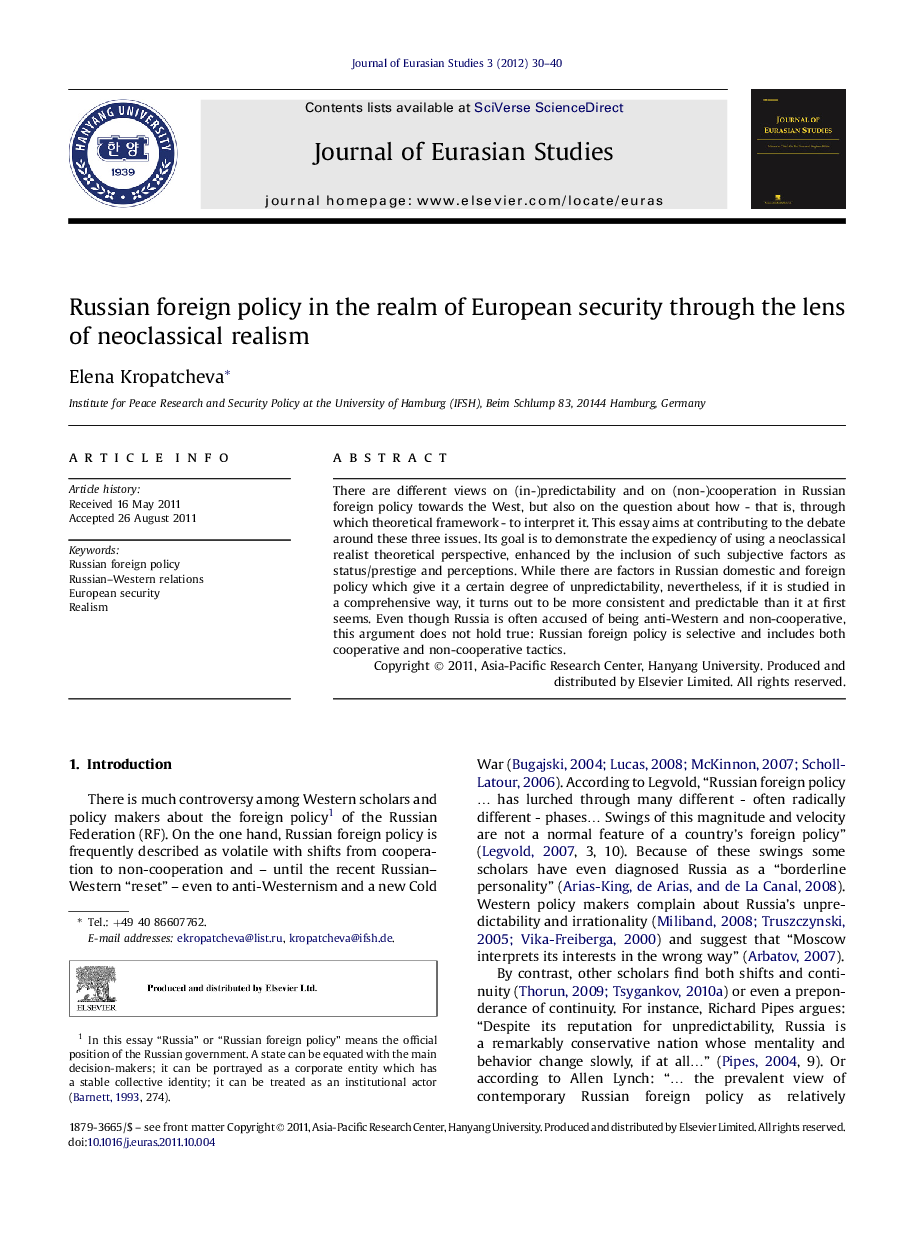| Article ID | Journal | Published Year | Pages | File Type |
|---|---|---|---|---|
| 1127313 | Journal of Eurasian Studies | 2012 | 11 Pages |
There are different views on (in-)predictability and on (non-)cooperation in Russian foreign policy towards the West, but also on the question about how - that is, through which theoretical framework - to interpret it. This essay aims at contributing to the debate around these three issues. Its goal is to demonstrate the expediency of using a neoclassical realist theoretical perspective, enhanced by the inclusion of such subjective factors as status/prestige and perceptions. While there are factors in Russian domestic and foreign policy which give it a certain degree of unpredictability, nevertheless, if it is studied in a comprehensive way, it turns out to be more consistent and predictable than it at first seems. Even though Russia is often accused of being anti-Western and non-cooperative, this argument does not hold true: Russian foreign policy is selective and includes both cooperative and non-cooperative tactics.
